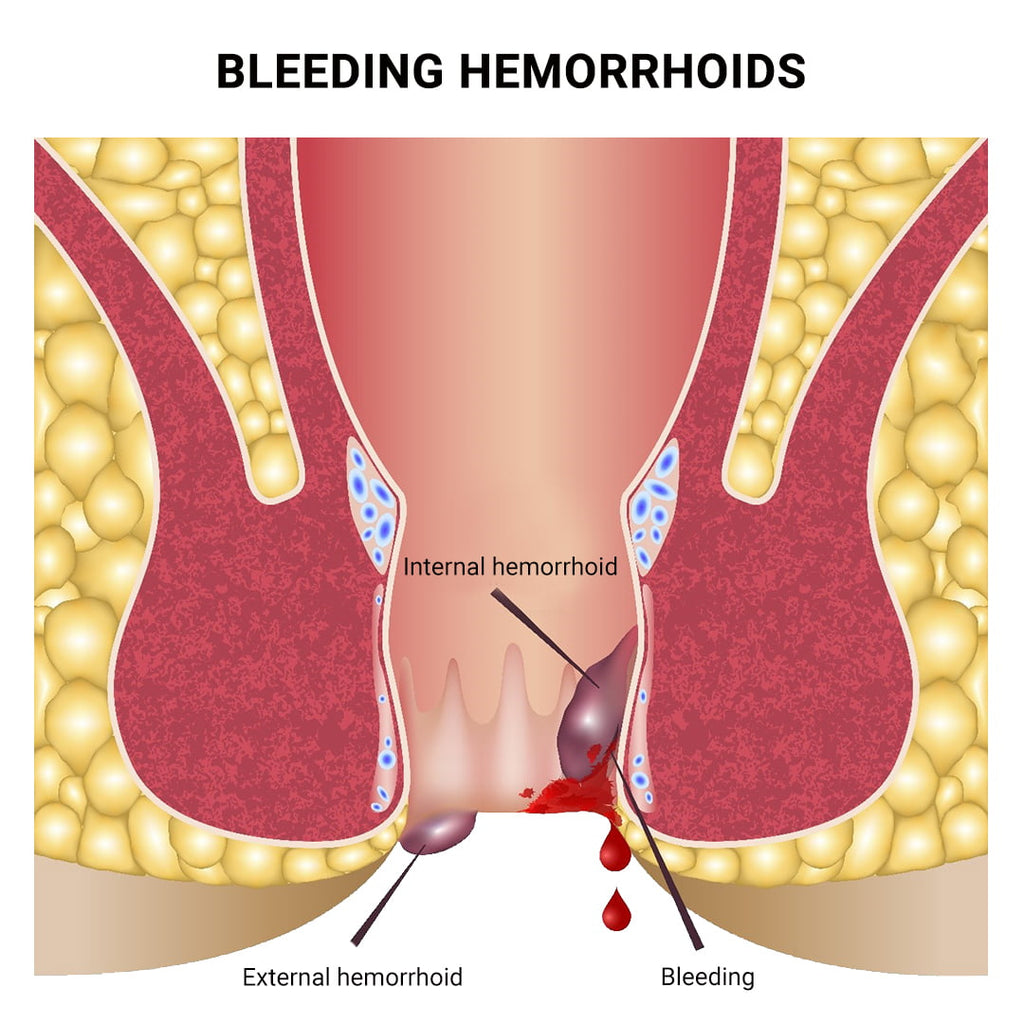A Cause for Concern or Comfort?
Hemorrhoids, those swollen veins around the rectum and anus, are a prevalent condition affecting millions globally. While not life-threatening, they can cause a range of unpleasant symptoms, including pain, bleeding, and the dreaded itch. But what happens when a hemorrhoid bursts, or ruptures? Is it a cause for immediate alarm, or is there room for some comfort?
This blog post delves into the world of ruptured hemorrhoids, exploring the potential dangers, common symptoms, and effective strategies for managing the situation. We'll also answer the burning question: is a ruptured hemorrhoid always a medical emergency?
Understanding Hemorrhoids and Their Rupturing:
Hemorrhoids occur when the veins around the rectum and anus become swollen and inflamed. These can be either internal (inside the rectum) or external (protruding outside the anus). While most hemorrhoids don't rupture, it can happen, particularly with external hemorrhoids that have developed a blood clot (thrombosed hemorrhoid). When the clot bursts, it can cause bleeding and potentially other symptoms.
Symptoms of a Ruptured Hemorrhoid:
- Bleeding: The most common symptom is bleeding, which can range from a few drops of bright red blood to a heavier bleed. It's important to note that rectal bleeding can also be a sign of other conditions, so consulting a doctor for proper diagnosis is crucial.
- Pain: While pain is a common symptom of hemorrhoids in general, a ruptured hemorrhoid might cause a sudden, sharp pain, followed by a dull ache. The pain might worsen with sitting or straining during bowel movements.
- Swelling: The area around the ruptured hemorrhoid might become swollen and tender.
- Discomfort: A general feeling of discomfort, itching, or burning sensation around the anus can be present.
Is a Ruptured Hemorrhoid Always Dangerous?
The good news is that in most cases, a ruptured hemorrhoid isn't a medical emergency. The bleeding usually stops on its own within a short period. However, there are some situations where seeking immediate medical attention becomes necessary:
- Severe Bleeding: If the bleeding is heavy and doesn't stop after a while, it's crucial to see a doctor to rule out other potential causes of rectal bleeding.
- Severe Pain: If you experience intense pain that makes it difficult to sit or perform daily activities, consulting a doctor is essential.
- Fever: A fever along with a ruptured hemorrhoid can be a sign of infection, requiring immediate medical attention.
Managing a Ruptured Hemorrhoid at Home:
While a ruptured hemorrhoid might not always necessitate a trip to the emergency room, some effective home care strategies can help manage the discomfort and promote healing:
- Sitz Baths: Warm sitz baths, where you soak your lower body in warm water for 10-15 minutes several times a day, can be incredibly soothing. The warmth helps reduce inflammation and pain, promoting healing.
- Pain Relief Medications: Over-the-counter pain relievers like acetaminophen or ibuprofen can help manage pain associated with a ruptured hemorrhoid.
- Cold Compress: Applying a cold compress to the area for short intervals can help reduce swelling and discomfort.
- Stool Softeners: If you experience constipation, using stool softeners as directed by your doctor can help prevent straining during bowel movements, which can worsen the discomfort.
- Maintain Proper Hygiene: Keeping the anal area clean and dry is crucial. Gently clean the area with warm water and a mild, fragrance-free soap after each bowel movement. Avoid using harsh soaps, wipes, or douches.
When to See a Doctor:
As mentioned earlier, while most ruptured hemorrhoids aren't an emergency, there are situations where seeking professional medical attention becomes necessary:
- Severe Bleeding: If the bleeding or intense pain doesn't stop within a reasonable timeframe, see a doctor.
- Fever: A fever with a ruptured hemorrhoid can indicate an infection and needs immediate medical attention.
- Persistent Symptoms: If your symptoms don't improve within a few days of home care, consult a doctor for proper diagnosis and treatment.
- Prolapsed Hemorrhoid: A ruptured hemorrhoid that remains prolapsed outside the anus (Grade 4) might require medical intervention for management.
Treatment Options for Ruptured Hemorrhoids
While home care can be effective for managing most ruptured hemorrhoids, some cases might necessitate medical intervention for faster healing or to address complications. Here's an overview of some common treatment options for ruptured hemorrhoids:
- Banding: This minimally invasive procedure involves placing a small rubber band around the base of an external hemorrhoid. The band cuts off blood supply to the hemorrhoid, causing it to shrink and eventually fall off within a week or two.
- Sclerotherapy: This procedure involves injecting a solution into the ruptured hemorrhoid tissue. The solution irritates the tissue, causing it to scar and shrink. Sclerotherapy can be used for both internal and external hemorrhoids and might require multiple sessions for complete healing.
- Hemorrhoidectomy: In severe cases with large or prolapsed hemorrhoids (Grade 4), surgical removal might be necessary.
There are different types of (painful or itchy lump near the anus)ectomy procedures, and the chosen approach depends on the (seriousness/ level) and location of the (painful or itchy lumps near anus). Recovery from a (painful or itchy lump near the anus)ectomy can take (more than two, but not a lot of) weeks, but it's a highly effective option for long-term (painful or itchy lump near the anus) resolution, even for broke cases.
Conclusion: Don't Panic, Take Charge
A ruptured hemorrhoid can be a cause for concern, but in most cases, it's not a medical emergency. By understanding the symptoms, implementing home care strategies like sitz baths and maintaining good hygiene, you can manage the discomfort and promote healing. Remember, consulting a doctor is crucial if you experience severe bleeding, intense pain, fever, or persistent symptoms. With the right approach, you can prevent future hemorrhoids and ruptures and achieve lasting comfort.

